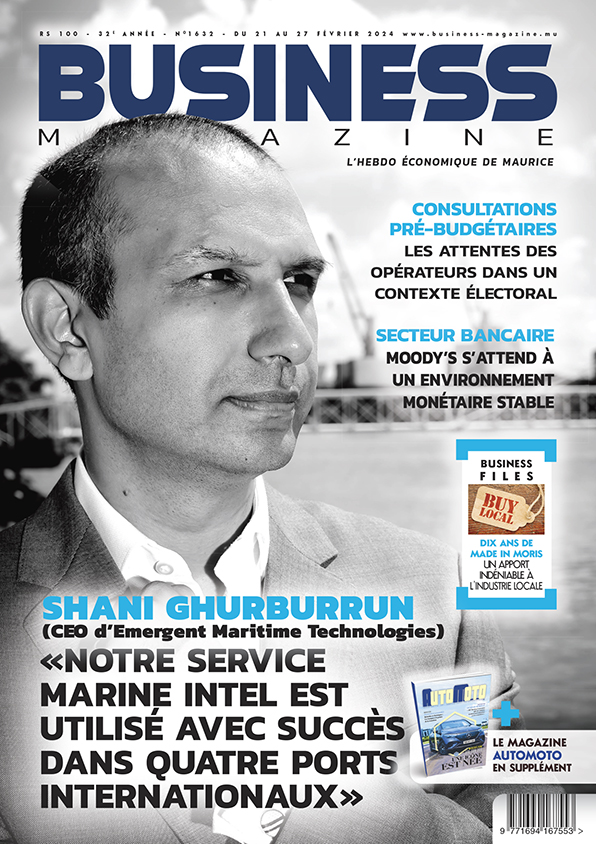Banking : Creating value in a transformative era
Share

WHAT an interesting time it is to be a banker! Indeed, our industry has entered an unprecedented transformative era as the way fi nancial services are accessed and delivered is radically changing. Digitalisation, rapidly evolving customer expectations, competition from non-banking fi nancial institutions, and climate change, among other factors, are prompting banks worldwide to revise their business models and their way of doing business.
The future bank envisions a world where individual narratives matter, where customers are more than mere account numbers. It’s about prioritizing understanding, acknowledging the diverse life situations and needs of each customer, and ensuring a service experience that is not just transactional but deeply meaningful and empathetic.
Embracing innovative approaches and disruptive technologies is no longer an option, but a necessity to create value for all stakeholders. Financial institutions across the world are leveraging technological innovations, such as Artificial Intelligence (AI) and automation. Their limitless potential is being harnessed to enhance customer experience while driving down cost to serve, to improve decision-making and employee experience, and increase positive impact for communities.
DELIVERING ON CLIENT EXPERIENCE
Over the past few years, the way clients interact with their banks has changed a lot. So have their expectations from these institutions. As a result, banks have prioritised convenience and accessibility by offering a suite of digital services, such as online banking platforms and mobile applications. These have enabled customers to access their accounts anywhere, anytime, and carry out transactions, pay their bills or transfer funds with just a few clicks. As KPMG rightly wrote in its 2024 Banking Trends report: “With each product update or unveiling, the challenge is to make it digitally accessible and userfriendly. Doing so is how an individual bank in a given market can retain its existing customers and attract new ones.”
Virtual assistants and chatbots have been integrated and are providing quick and responsive customer support, resolving queries and issues effi ciently round-the-clock. For example, in line with that trend, Absa Mauritius has successfully introduced several industry-fi rst initiatives over the last three years. A major milestone has been the launching of Abby, an AI-powered Personal Digital Banker, both in the form of a humanoid robot and a digital kiosk at all our branches. 72% digital adoption rate observed at Absa Mauritius in 2023 is also evidence of a clear trend that customers are signifi cantly embracing digital transformation.
The advent of generative AI holds many prospects for the banking industry. Coupled with data mining, this technology enables banks to deliver personalised customer experiences by analysing several factors to come up with tailored advice or products. Automating certain routine tasks helps to streamline processes. This leads to quicker turnaround times and personalised interactions with customers through product recommendations and financial advice.
CREATING VALUE FOR EMPLOYEES
The digitalisation and automation of some routine and tedious tasks and processes is leading to profound changes in job roles, skill requirements and work practices. Employees are now expected to possess digital literacy and agility to work effectively with these new technologies. They need to adopt a digital-first mindset and culture where the customer is centre stage. Banks are investing substantially in continuous learning and development to empower their workforce to adapt to new work practices and foster a culture of innovation.
The challenge for banking institutions is to revisit their talent landscape and see how they can successfully blend human and artificial intelligence to better service their clients. Traditional roles such as tellers or customer service representatives are changing, while other positions, such as data analysts or engineers, AI and cybersecurity experts, just to name a few, are gaining more importance.
In a report entitled ‘The economic potential of generative AI: The next productivity frontier’, experts from McKinsey explain that “generative AI could have a significant impact on the banking industry, generating value from increased productivity of 2.8 to 4.7 per cent of the industry’s annual revenues.” International banks are already taking advantage of generative AI, such as ChatGPT, to create AI assistants to help their employees to find and synthesise responses from internal knowledge bases. Indeed, generative AI assistants could help service professionals to rapidly access all relevant information, such as product guides and policies, to respond to customer queries in a timely manner. By automating repetitive and time-consuming tasks, employees will have more time to focus on core banking, which is building trust with our clients and advising them on more complex issues.
BALANCING DIGITALISATION WITH PURPOSE
By embracing digital innovation, banks can play a crucial role in driving sustainable and inclusive growth. Technology has become a powerful tool to extend essential financial services to underserved groups, especially women and youth.
Moreover, moving towards digital banking services also contributes to sustainability by reducing the environmental footprint (paper waste use, energy consumption and carbon emissions, etc.). Besides integrating environmental considerations and climate risks into their business operations, banks are expected to invest in sustainable initiatives to support the transition to a lowcarbon economy.
CHARTING THE PATH: BANKING’S ROLE IN THE SUSTAINABLE FUTURE
There is a profound shift taking place across the Banking sector in terms of the role that Banks need to play in creating a future that is more optimistic, more hopeful, and ultimately more prosperous for all. In this transformative era, the range of banking stakeholders – from customers, shareholders, regulators, suppliers, and employees – are demanding a more holistic approach from banks in terms of value creation. This holistic approach goes beyond the traditionally disproportionate focus on just financial metrics. As markets and expectations evolve, banks must embrace a broader set of objectives in defining their success – notably those of Sustainability and ESG.
Sustainability is now a mainstream pillar driving economic development, particularly in emerging economies and across the African continent. For example, investments in green energy not only create jobs and uplift communities but also provide crucial access to electricity in less developed regions. Sustainability is now at the centre of core Banking strategy in terms of both doing the right thing but also in achieving competitive advantage by growing market share via new products and propositions that will shape a more sustainable future for all.
Moreover, sustainability measures are becoming integral to banks’ risk management processes, with environmental assessments playing a more prominent role in assessing financing opportunities. Product development is also evolving, with banks deliberately integrating environmental and social factors into their offerings alongside the standard financial considerations.
The future demands proactive action, with banks setting ambitious long-term targets such as achieving net zero emissions by 2050. Over and above getting their own houses in order in terms of decarbonizing their banking operations, the biggest opportunity lies in how banks can enable and support clients in navigating immediate challenges by offering tailored financial solutions against climate change impacts like flash floods and coastal erosion. On this, there is also an underlying shift from climate mitigation to climate adaptation. The reality is that Climate Change is already here, and the consequences are being experienced already. Therefore, alongside providing banking solutions to mitigate climate change, there is an immediate need to provide solutions that allow customers to adapt here and now to the existing reality of climate change.
Furthermore, banks are expected to demonstrate thought leadership in driving the broader economy towards a low-carbon transition and embracing circular business models – in a just and coordinated manner. Strategic partnerships will play a crucial role in execution, as banks leverage expertise from relevant pockets of expertise and engage in public-private collaborations to find synergies in a shared, vested interest alongside national sustainability ambitions.
As customers increasingly prioritize sustainability, banks championing environmental and social responsibility are well positioned to thrive in the long term. Beyond financial returns, they build trust, loyalty, and resilience in their relationships with stakeholders, reaffirming sustainability as a fundamental paradigm reshaping the future of banking.

















